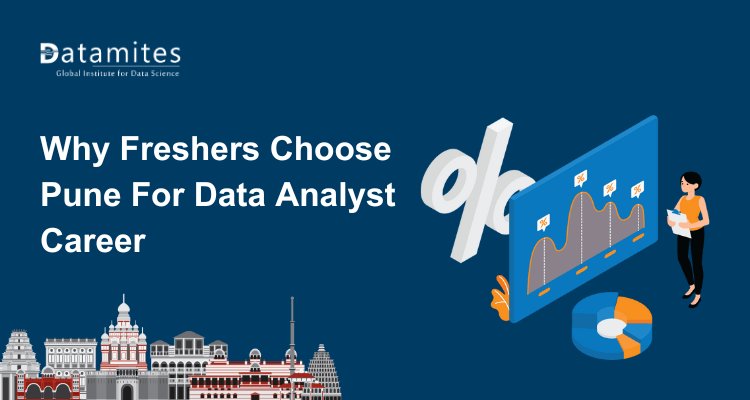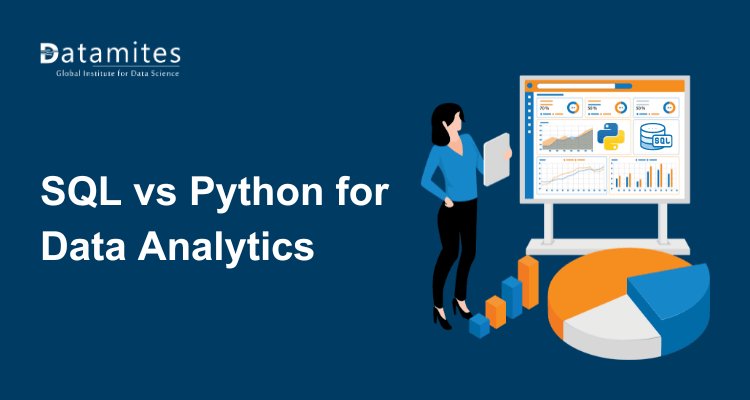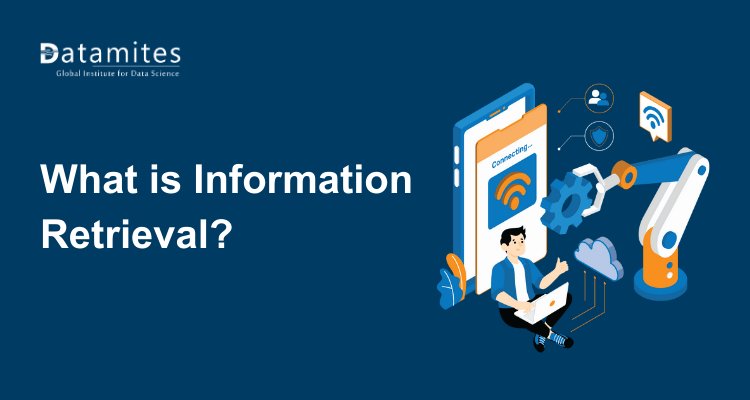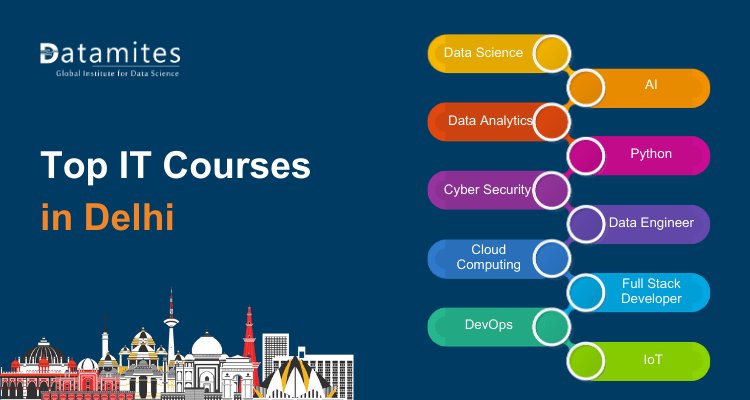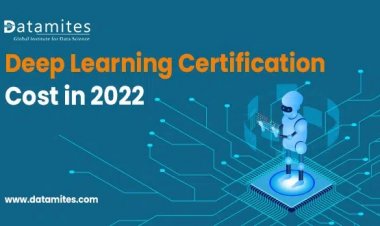Is AI Changing the Role of Data Analysts?
Discover how AI is transforming the role of data analysts by automating tasks, enhancing insights, and boosting strategic impact. Learn about top AI tools, evolving responsibilities, and how DataMites' offline Data Analyst courses in major cities can shape your future in analytics.
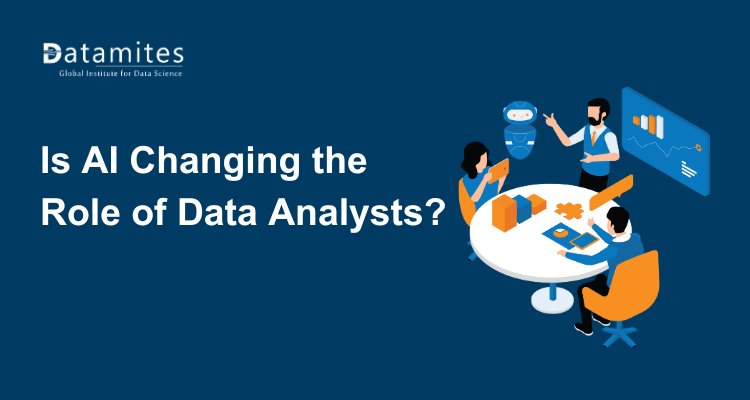
Discover how Artificial Intelligence is reshaping the role of data analysts, transforming traditional responsibilities through automation, predictive analytics, and powerful AI tools. Learn the evolving skills needed in the AI-driven world of modern data analysis.
AI and Its Impact on Data Analysts
The advent of artificial intelligence in data analytics is transforming how organizations interpret and utilize data. The traditional role of data analysts involved collecting, cleaning, and interpreting data to support decision-making. Today, AI in data analysis is revolutionizing this role by introducing intelligent automation, advanced insights, and predictive capabilities. As businesses adopt AI-powered tools, the data analyst job role is rapidly evolving to become more strategic, tech-enabled, and insight-driven.
Understanding the shift in the data analytics roles and responsibilities caused by AI is crucial for both professionals and organizations. With AI technologies seamlessly integrating into analytics platforms, the way analysts work, think, and solve problems is undergoing a significant transformation.
Impact on Data Analyst Roles
The influence of AI and data analytics is not just a technological upgrade—it's a paradigm shift. For businesses, understanding this evolution is essential to ensure they hire, train, and equip analysts with the right skills. For professionals, grasping the emerging trends is vital for career advancement and future-proofing their skillsets.
The data analyst responsibilities now extend beyond basic data handling. Analysts are now increasingly required to work alongside data scientists, leverage AI tools, and play an active role in shaping strategic business decisions.
Thus, staying informed about how AI is influencing the data analyst job role and data analyst career is indispensable for long-term success.
Integration of AI into Modern Data Analytics
In recent years, the rise of artificial intelligence and data analytics has accelerated the digital transformation of businesses. AI technologies like machine learning, natural language processing (NLP), and computer vision are now essential tools in the modern data ecosystem. These innovations are not only reshaping how businesses extract value from data but also redefining the skills for data analysts to stay relevant in an AI-augmented environment.
Previously, data analysts were expected to manually sift through large datasets and generate reports. AI for data analysis now automates tasks, enhances visualization AI tools, and delivers real-time insights, enabling analysts to interpret complex data faster and more accurately.
Read the articles below:
- Future of Data Analytics: What Skills Will Matter by 2030
- Top Industries Hiring Data Analysts in 2025
- Mastering Data Analytics in India
How AI is Transforming Data Analysts?
AI is redefining the role of data analysts by automating manual processes, enhancing analytical precision, and empowering them to focus on strategic, high-impact decision-making.
AI Introduces Automation and Advanced Analytics
Artificial intelligence is fundamentally altering how data analysts operate. From automating tedious tasks to providing intelligent insights, AI is streamlining workflows and enhancing productivity. According to MarketsandMarkets, the global AI in analytics market is projected to grow from USD 13.5 billion in 2023 to USD 38.8 billion by 2028, at a CAGR of 23.3%.
1. Automated Data Processing
One of the primary benefits of AI in data analysis is the automation of data preparation. Tools powered by AI can clean, validate, and organize massive datasets at a speed and accuracy unattainable through manual methods. This significantly reduces the time analysts spend on preprocessing and allows them to focus on deriving insights.
2. Predictive Analytics
Artificial intelligence and data analytics come together in the form of predictive models. By using historical data, machine learning algorithms can forecast trends, customer behavior, and operational outcomes. This enables analysts to move beyond descriptive analysis and engage in proactive decision-making.
3. Natural Language Processing (NLP)
Natural language processing capabilities allow analysts to query data using everyday language. This means professionals without programming knowledge can still perform complex analyses, thus broadening the accessibility of data insights across departments. NLP-driven platforms have become essential AI tools for data analysis, enabling quick and intuitive interactions with datasets.
Top AI Tools Empowering Data Analysts
To meet the increasing demand for smart analytics, various tools for data analyst have emerged. These tools not only simplify workflows but also enhance the analytical power of data analysts.
Microsoft Power BI
Microsoft Power BI integrates AI capabilities to offer predictive analytics and intelligent data visualization. With features like Quick Insights and AI Visuals, analysts can uncover hidden patterns in data. It’s especially beneficial for understanding customer trends and improving forecasting accuracy—both key responsibilities in the data analyst job role.
Tableau
Tableau leverages AI in data analysis through its “Ask Data” and “Explain Data” features. These functionalities use NLP to respond to natural language queries, allowing users to interact with data intuitively. The platform is designed for scalability and can be used across various industries, enhancing the value of data analytics roles and responsibilities.
Polymer
Polymer is a generative AI platform tailored for visual storytelling and market trend monitoring. It allows analysts to generate visualizations and dashboards rapidly, making it an efficient tool for professionals focusing on visualization AI. The tool caters to a growing demand for creative yet accurate data representation.
MonkeyLearn
MonkeyLearn is well-suited for text analysis and data visualization, enabling analysts to extract insights and categorize information from unstructured text data. It supports automation of common data analyst responsibilities like sentiment analysis, customer feedback interpretation, and topic extraction—without the need for coding.
Rows AI Analyst
Rows AI Analyst brings together the power of spreadsheet automation and natural language querying. With built-in AI features, analysts can use plain English to generate reports, build visualizations, and automate repetitive tasks. This is an excellent tool for enhancing the efficiency of AI for data analysis.
Google’s Gemini AI
Integrated within Google Workspace, Gemini AI allows users to perform data analysis tasks directly in tools like Sheets and Docs. It provides suggestions, automates calculations, and even generates summaries—features that complement the skills for data analysts in a fast-paced digital environment.
Microsoft Copilot
Embedded within Microsoft 365, Microsoft Copilot supports analysts by generating summaries, suggesting formulas, and automating reporting workflows. It's a powerful assistant for streamlining data analyst responsibilities, particularly in corporate settings where time and accuracy are critical.
Real-World Case Studies
The transformation brought by AI and data analytics can be best understood through practical applications:
Case Study 1: Retail Sector Optimization
A global retail company implemented Microsoft Power BI and Tableau to streamline its sales and inventory management. Using AI tools for data analysis, the company reduced its manual reporting efforts by 60% and improved demand forecasting accuracy by 30%. The data analyst job role evolved from mere reporting to strategic forecasting and customer behavior analysis.
Case Study 2: Healthcare Predictive Analysis
A healthcare analytics firm used NLP-powered platforms like MonkeyLearn to analyze patient feedback and clinical data. Through AI in data analysis, analysts could identify patient satisfaction trends and predict treatment outcomes, significantly improving patient care. The demand for data analyst skills needed in this domain expanded to include machine learning literacy and natural language processing.
According to the World Economic Forum’s Future of Jobs Report 2023, AI and big data specialists, including data analysts with AI skills, are among the top 10 most in-demand job roles projected for 2023–2027.
Case Study 3: E-Commerce Customer Insights
An e-commerce company utilized Google’s Gemini AI and Polymer to enable real-time analytics and visualization AI. The automation of spreadsheet tasks and the ability to generate AI-powered visual dashboards improved marketing strategy decisions and reduced churn rates. Here, the data analytics roles and responsibilities extended into UX optimization and conversion funnel analysis.
The data analyst responsibilities are no longer confined to backend tasks. They now include storytelling, AI collaboration, and strategic planning. In terms of global investments, IDC predicts that worldwide spending on AI-centric systems will reach $300 billion by 2026, with a significant portion allocated to data analytics platforms and solutions.
Refer to the articles:
- Top IT Courses in Pune
- Top IT Courses in Hyderabad
- Top IT Courses in Chennai
- Top IT Courses in Chandigarh
The integration of AI in data analysis is undeniably reshaping the role of data analysts. From automating routine processes to enabling complex predictive modeling and intuitive data querying, AI is enhancing the scope and impact of analytics professionals. As the demand for real-time, data-driven decision-making rises, understanding and adopting AI tools is no longer optional for data analysts—it's a necessity.
Enrolling in an Data Analyst course in Bangalore major tech hubs like Bangalore, Chennai, Pune, Hyderabad, Ahmedabad, Coimbatore, Delhi, Jaipur, and Mumbai offers hands-on industry experience, valuable networking opportunities, and enhanced job prospects—laying a solid foundation for a thriving career in data analysis and software development.
DataMites Institute stands as a premier destination for cutting-edge training in the fields of Data Science, Artificial Intelligence, Machine Learning, Python Development, Data Analytics, Data Engineering, and IoT. Renowned for its industry-aligned curriculum and hands-on learning approach, DataMites equips learners with the most in-demand skills needed to thrive in today’s fast-evolving tech landscape.
What sets DataMites apart is its commitment to quality and global relevance—offering internationally recognized certifications through prestigious bodies like IABAC and NASSCOM FutureSkills. These credentials not only validate a learner’s expertise but also significantly boost employability in competitive markets.
DataMites Institute provides offline Data Analyst courses in Chennai but also across major cities like Pune, Hyderabad, Bangalore, Ahmedabad, Jaipur, Coimbatore, Delhi, and Mumbai, ensuring flexible and accessible learning opportunities for aspiring professionals nationwide.
With a strong emphasis on career support, DataMites goes beyond training by providing placement assistance, internship opportunities, and real-world project experience, ensuring students are job-ready from day one.

